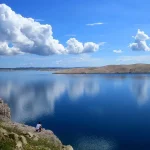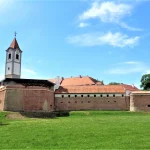August 29, 2023 – While the phrase ‘sustainable tourism’ is all the rage, how out of sync is Croatia with the rest of the EU tourism countries? Very, according to these three graphs.
One of the people I follow on LinkedIn is a chap called Milan Horvat in Varazdin. We have never met, but he regularly posts thought-provoking updates, usually accompanied by a chart or other data to back up his claims. Mostly, his posts are business-related, but this one yesterday touched on what I believe is the core issue with Croatia’s tourism direction – in an era of sustainable tourism, Croatia is so far from any other EU country in some respects, it really is quite incredible.
Here is what Milan posted (translated from the original Croatian):
Croatian tourism in three graphs.
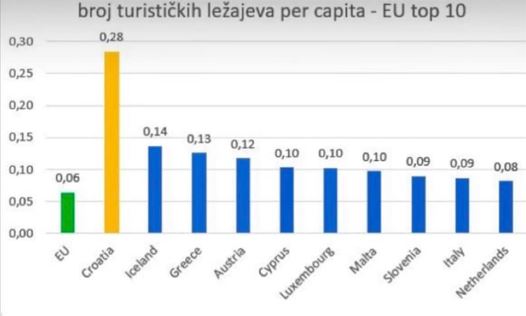
1) We have the most accommodation capacity per capita in the EU, twice as much as second-ranked Iceland, and three and a half times more than the EU average.

2) The utilization of these capacities of ours is significantly below the EU average. We are not even among the top 10 countries. We are behind all our Mediterranean competitors. We are at the bottom and only five EU-27 countries have lower utilization than us.
Over 60% of our beds are concentrated in private accommodation, and their utilization cannot simply increase significantly. Private accommodation as we have on average with tourism based on the sun and the sea does not have the power to attract guests outside the main season and vacations.
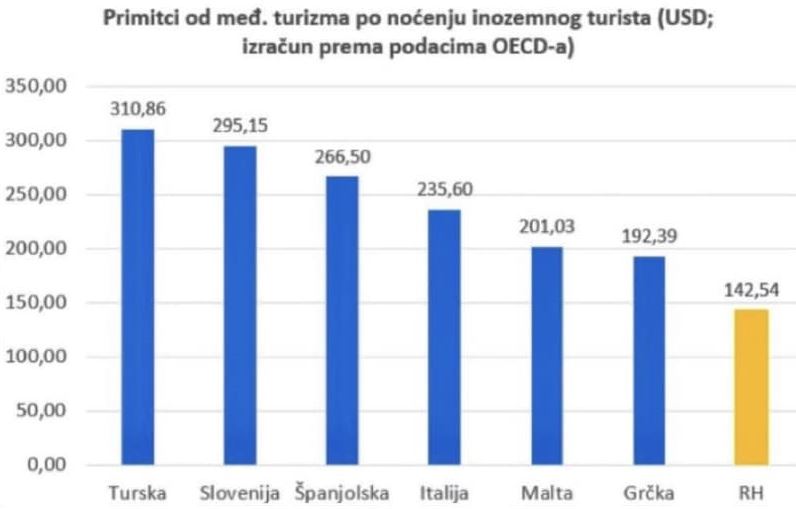
3) Finally, the calculation of receipts from international tourism per overnight stay (average income per overnight stay of a foreign tourist), based on OECD data for 2019. With USD 143 per night of foreign tourists, the Republic of Croatia earns significantly less than all its Mediterranean competitors. Slovenia earns twice as much as us. Out of 32 countries for which data are available, the Republic of Croatia ranks 31st. We are only better than Peru.
Thank you Prof. Josip Mikulić on graphs and data worthy of serious reflection on the dilemma, is it just the construction of infrastructure with insufficiently used opportunities or something else?
****
So in summary, despite the continual ‘record’ seasons (Amsterdam has more tourists than the whole of Croatia, by way of comparison), Croatia has an abnormal number of tourist beds, totally at odds with any other country. Occupancy of those beds is one of the lowest in the EU. And the income from the daily spend is modest at best – Slovenia attracts more than double the spend.
It is actually a bit more worrying, since the majority of tourist beds are in private accommodation. If there is a sustainable tourism plan somewhere, someone might want to look at this:
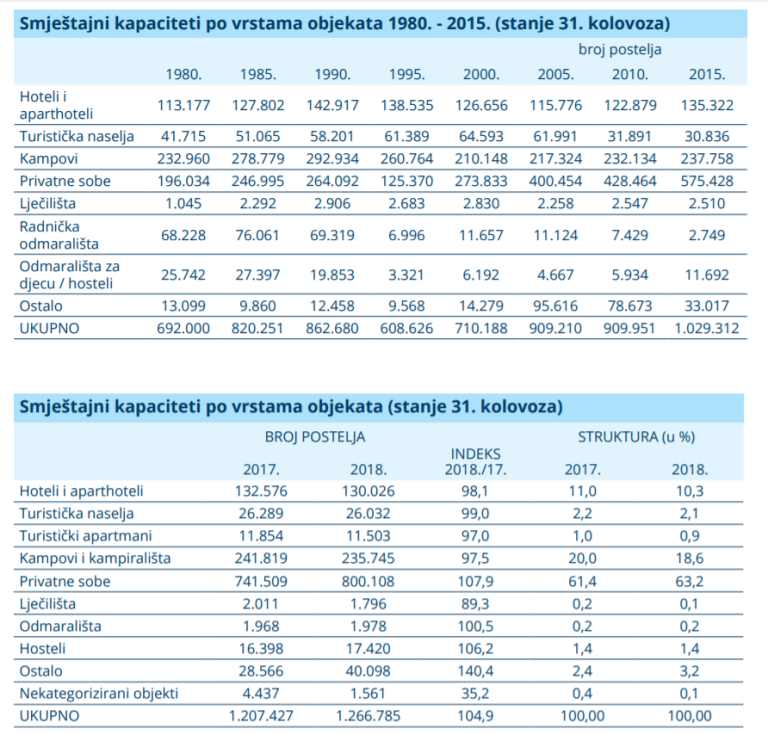
These statistics, provided by the Croatian National Tourist Board, show that the number of private beds has grown from 264,000 in 1990 to 428,000 in 2010, to a cool 800,000 in 2018. The media reported recently that over 300,000 new beds have come on the market since 2017 – an average of 60,000 a year, and now over a million in total.
Without the hotels, hostels etc.
Average occupancy 79 days. So let’s build more and have large parts of the coast virtual ghost towns most of the year, the cities centres handed over to AirBnB rentals.
Quite apart from the massive oversupply of accommodation, the perks for renting accommodation from a tax point of view far outweigh working for a living, with renters effectively paying just 2% in tax (and no VAT for the first 40,000 euro of income). It makes perfect sense to move in with your parents for the summer, rent your coastal place to tourists for 4 months, pay your tax of 2%, and no other taxes, then have over 39,000 euro to live off for the rest of the year, while complaining about the poor services and why Croatia doesn’t function well.
Sustainable tourism? How about stopping the new builds of even more units, increasing the occupancy, doubling the spend, and encouraging people into jobs where they can contribute both to the country and its tax coffers.
For more on this subject, an illuminating article from PR guru Kresimir Macan in How Croatia’s Tourism ‘Strategy’ Created Tax-Free Paradise for Private Renters.
I always get attacked by private renters when we mention this subject. My response – to which no private renter has come back to me on – is a question on this scenario.
Apartment owner in Split moves out of his apartment for 4 months in the summer. Deals with bookings, cleaning etc – Makes 40,000 (just below VAT threshold) euro and lives well for the rest of the year, even after costs.
Apartment owner in Vukovar, where there are few jobs and little tourism, so self-employment the best of the limited options. Slaves for 12 months and makes 40,000 euro a year.
My question – should the person in Split pay more tax, less tax, or the same tax as the person working all year in Vukovar?
I am certainly not for more tax in Croatia – there is enough already, but fairer tax, yes.


